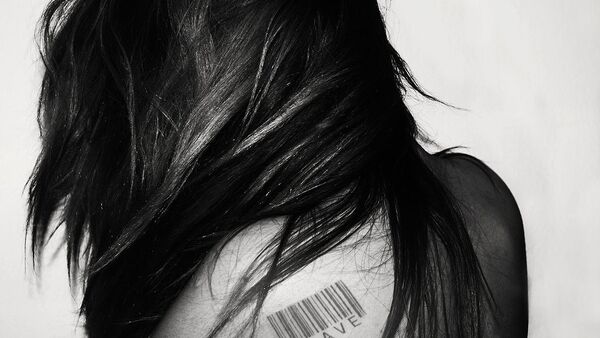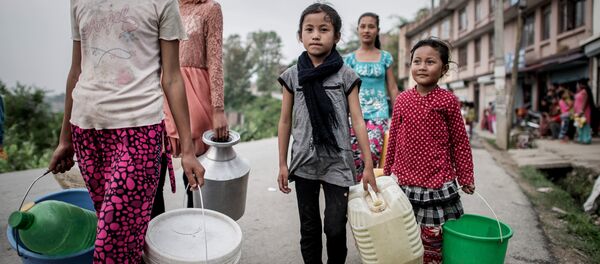Four houses were searched, cash, cell phones and valuable items were seized from the suspects — and eight potential victims were taken into care.
The pan-European investigation, assisted by Europol — the EU's criminal intelligence arm — helped police in Scotland and Romania by sharing intelligence and information and analysis from cell phone records.
#PR #Humantrafficking network involved in sexual exploitation dismantled @policescotland @_PolitiaRomana_ @Europol https://t.co/PCauBxzyEM
— Europol (@Europol) April 14, 2016
However, the arrest of one suspect and the discovery of eight potential victims of sexual slavery, only scratches the surface of the reality and expanse of human trafficking — and its legacy on survivor's mental health.
'Pop-up Brothels'
In Cumbria, three hours south of the Scottish border, police recently shut down so-called "pop-up brothels" in the town of Barrow. Local newspaper, The Evening Mail reported that criminal gangs were targeting refugees to use as prostitutes and booking hotel rooms to use as a base to exploit their victims.
"It all started when a Romanian couple got in touch looking for a room," a local businesswoman in Barrow, who wanted to remain anonymous, told the newspaper.
"A few weeks later we had more Romanian women checking in. I was on holiday when I was contacted by a staff member who told me she had found a Romanian girl crying in the corridor."
The landlady later discovered her address was being used on a website to advertise the girls for sex.
Police in Barrow have shut down three "pop-up brothels"; the sex workers were not prosecuted — instead treated as victims.
'I Don't Want to Talk About It'
The legacy of a life trafficked for sex, domestic servitude and forced labor has been revealed in one of the biggest ever studies of trafficking survivors and their mental health in the UK.
High levels of mental illness reported by victims of #humantrafficking in the UK: https://t.co/82Yob3gLGR pic.twitter.com/pf1ZPE2Enl
— Inst of Psychiatry (@KingsIoPPN) April 15, 2016
The new report, commissioned by the UK Department of Health, reveals that 80 percent of women who had been exploited for sex, labor, or domestic servitude were still suffering from severe mental health problems, including post-traumatic stress disorder, severe depression or anxiety.
Sixty-six percent of women forced into sexual slavery had been raped.
"I don't want to talk about it. It upsets me. I don't like talking about it, or speaking about it," one survivor explained.
"It brings back a lot of memories, but it hurts me to speak about it, but obviously now I'm okay."
Another survivor in her mid-twenties who was also trafficked and forced to become a sex worker had tried to get help for years.
"I'd been attempting to reach the help that I needed for, I would say, over six years."
'A Crime That Does Not Discriminate'
The study led by Kings College London (KCL) and the London School of Hygiene and Tropical Medicine and published in the American Journal of Public Health (AJPH), found that of 150 people trafficked to the UK from more than 30 different countries, nearly 80 percent of women and 40 percent of men, reported high levels of depression, anxiety and PTSD.
"The key message of our findings is quite simple: human trafficking or modern slavery is a crime that does not discriminate. It damages the physical and psychological health of men and women exploited in many different labour sectors," Dr Cathy Zimmerman, co-investigator from the London School of Hygiene and Tropical Medicine said.
In 2013, the UK Home Office estimated that there were between 10,000 and 13,000 trafficked people in the UK who had been forced into sex work, domestic servitude or labor.
Watch our video w/ @sianoram @KingsIoPPN & Cathy Zimmerman @LSHTMpress on new #humantrafficking research: https://t.co/kqbJDBxvmS
— Inst of Psychiatry (@KingsIoPPN) April 15, 2016
More than 20 million people worldwide are thought to be victims of human trafficking.
The dismantling of a Romanian-run sex trafficking ring in Scotland can be met with success — but it only scratches the surface of the reality of the situation in the UK and Europe, with the chilling levels of mental illness only just revealed.
Concerns continue to grow over the numbers of unaccompanied child refugees in Europe vulnerable to exploitation from people traffickers.



